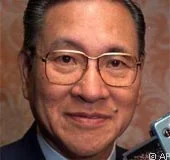 Norio Ohga otherwise spelled Norio Oga, was the former president and chairman of Sony Corporation, accredited for driving the development [1] of the compact disc as a commercially viable audio format died from multiple organ failure he was , 81..
Norio Ohga otherwise spelled Norio Oga, was the former president and chairman of Sony Corporation, accredited for driving the development [1] of the compact disc as a commercially viable audio format died from multiple organ failure he was , 81..(January 29, 1930 – April 23, 2011) |
Biography
Early career
 Ohga was born in Numazu, Shizuoka.[2] When he was a child, he suffered tuberculosis that kept him in bed for a long time during which an acquaintance taught him physics and music. As a young man, Ohga aspired to be a professional opera singer, and went on to read at the prestigious Tokyo National University of Fine Arts and Music, graduating in 1953. It was a highly critical letter written to the Tokyo Tsushin Kogyo KK (also known as Totsuko and later as Sony), complaining about their tape recorder’s many failings that got him noticed by Masaru Ibuka, Akio Morita and other Totsuko executives. Because of his insight in music and technology, the company hired him as a part-time consultant.[3] He went on to study music in München and Berlin, where he formed a friendship with the conductor Herbert von Karajan.[4] The young man's knowledge of sound and electrical engineering continued to be an asset to the company, and rising to become the president of CBS/Sony Records Inc. (currently Sony Music Entertainment Japan) in 1970, by the age of 40 - this was unprecedented in the history of the Japanese company.[5]
Ohga was born in Numazu, Shizuoka.[2] When he was a child, he suffered tuberculosis that kept him in bed for a long time during which an acquaintance taught him physics and music. As a young man, Ohga aspired to be a professional opera singer, and went on to read at the prestigious Tokyo National University of Fine Arts and Music, graduating in 1953. It was a highly critical letter written to the Tokyo Tsushin Kogyo KK (also known as Totsuko and later as Sony), complaining about their tape recorder’s many failings that got him noticed by Masaru Ibuka, Akio Morita and other Totsuko executives. Because of his insight in music and technology, the company hired him as a part-time consultant.[3] He went on to study music in München and Berlin, where he formed a friendship with the conductor Herbert von Karajan.[4] The young man's knowledge of sound and electrical engineering continued to be an asset to the company, and rising to become the president of CBS/Sony Records Inc. (currently Sony Music Entertainment Japan) in 1970, by the age of 40 - this was unprecedented in the history of the Japanese company.[5]Later career
He was made the president of Sony in 1982, and the CEO of Sony in 1989. That same year, he purchased Columbia Pictures Entertainment (currently Sony Pictures Entertainment) from the Coca-Cola Company for $3.4 billion.[6][7]A year earlier, he acquired the CBS Records Group (currently Sony Music Entertainment) from Columbia Broadcasting System. Ohga also played a key role in establishing Sony Computer Entertainment in 1993. He supported Ken Kutaragi to develop the PlayStation as a Sony-owned console.In 1994 he succeeded co-founder Akio Morita as Sony chairman. The next year he selected Nobuyuki Idei as the company's next president, a decision he later told author John Nathan appalled 99 out of 100 people at the company, and it led to a sweeping reorganization of the company. Indeed, Idei lasted until 2005 when he was succeeded by Howard Stringer. Idei became Co-CEO with Ohga in 1998, and sole CEO in 1999.
In 2000 he became semi-retired, staying Chairman of the Board while Idei became Executive Chairman, and on his 73rd birthday in 2003 Ohga retired from the board and became Honorary Chairman. In later years, he developed a driving ambition to conduct great orchestras.[4][8] He died in Tokyo.



No comments:
Post a Comment